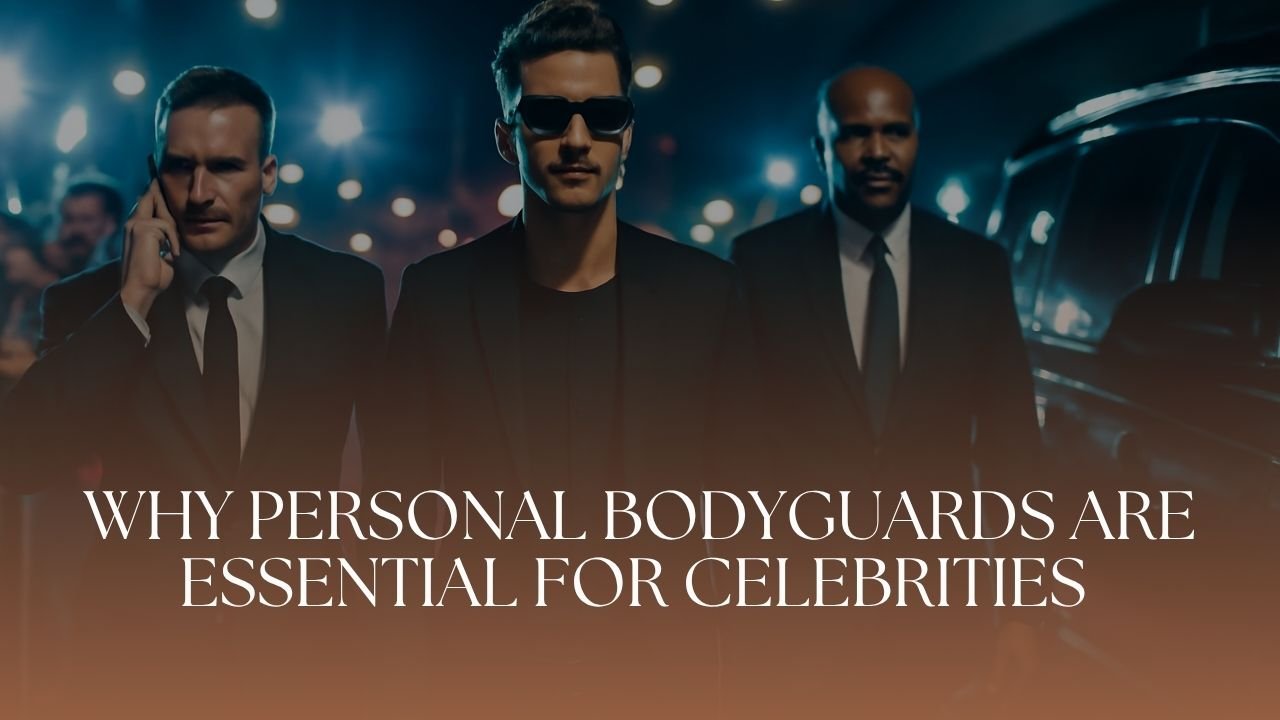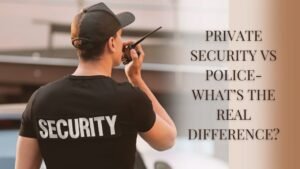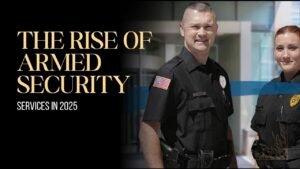The glitz and glamour of celebrity life come with more than red carpets and flashing cameras. Behind the fame lies a constant struggle for privacy, safety, and peace of mind.
Whether walking through airports, attending movie premieres, or simply enjoying dinner with friends, celebrities live under a magnifying glass. Every move they make can draw attention, adoration — or danger.
While fame opens doors, it also attracts unwanted risks: obsessive fans, stalkers, aggressive paparazzi, and even organized criminal activity. In today’s digital era, personal security for celebrities is no longer optional — it’s essential.
This article explains why personal bodyguards are crucial for celebrities, how they protect against threats, what roles they perform, the laws governing their profession, and why they are indispensable for the safety and stability of public figures.
The Rising Threat Landscape for Celebrities
Constant Public Exposure
Celebrities live their lives in public — from press tours and award shows to social media posts and fan interactions. This constant exposure makes them predictable targets.
When a person’s routine and location are publicly available, it becomes easier for potential stalkers or attackers to track and ambush them.
Paparazzi and Media Intrusion
The modern paparazzi culture thrives on invasive coverage. Celebrities are followed during vacations, medical visits, or family outings.
In many instances, photographers block vehicles or crowd around hotel entrances, creating physical safety hazards. Bodyguards maintain secure perimeters, ensuring that fans and media maintain safe, legal distances.
Stalkers and Online Threats
Social media has blurred the boundaries between fans and personal space. Some individuals cross lines by sending threats, tracking locations through posts, or attempting physical contact.
A personal bodyguard identifies and mitigates these risks before they escalate.
Event and Crowd Control Dangers
Concerts, award ceremonies, and charity galas are high-risk environments. Excited fans, gatecrashers, or protesters can disrupt an event or cause injury.
Professional bodyguards manage the crowd flow, secure exits, and respond instantly to emergencies.
The Core Roles and Responsibilities of Personal Bodyguards
1. Threat Assessment and Planning
Before a celebrity attends any event, a professional security team conducts a threat assessment. This includes background checks, online intelligence, analysis of recent threats, and reviewing the layout of venues. These steps help identify potential attackers, weak points, or routes that need reinforcement.
2. Advance Venue Work
Before the celebrity arrives, the advance security team visits the site. They inspect parking zones, emergency exits, restrooms, and crowd control barriers.
They also test communication devices and plan escape routes in case of emergencies.
3. Escort and Protective Formations
Bodyguards form protective bubbles around the celebrity when moving through crowds or public spaces.
These formations are designed to block physical contact, shield from view, and allow swift evacuation. Their movements are practiced to maintain coordination, even under pressure.
4. Secure Transportation and Route Security
Many bodyguards double as trained security drivers. They plan routes, monitor GPS for traffic or risks, and are trained in evasive driving techniques.
Vehicles are often reinforced, with bullet-resistant glass, run-flat tires, and privacy screens.
5. Crowd Control and Barrier Management
Bodyguards regulate how fans and media approach a celebrity. They set physical barriers, manage entrances, and ensure crowd enthusiasm does not turn into chaos.
They are trained to de-escalate situations verbally before physical action is required.
6. Privacy and Reputation Protection
Discretion is a hallmark of elite bodyguards. Their duty extends beyond physical safety — it includes protecting reputation and privacy.
They ensure sensitive moments, like hospital visits or family outings, remain private.
7. Emergency and Medical Preparedness
A modern bodyguard’s training often includes first aid, trauma care, and CPR. In the event of a medical emergency or attack, they can stabilize the client before medical help arrives.
Key Duties of Celebrity Bodyguards
| Protection Category | Core Duties | Purpose |
|---|---|---|
| Threat Assessment | Review threats, social media analysis, background screening | Prevent potential risks before exposure |
| Advance Planning | Site inspection, route design, communication testing | Avoid weak points in logistics |
| Escort Formations | Walking or vehicle formations around client | Maintain distance and safety buffer |
| Transportation Security | Evasive driving, route alteration, safe vehicle selection | Ensure secure travel between locations |
| Crowd Control | Managing entry/exit flow, verbal de-escalation | Prevent stampedes or aggression |
| Discreet Operation | Low-profile protection, minimal interference | Maintain privacy and comfort |
| Emergency Response | First aid, tactical evacuation, coordination with local police | Immediate crisis management |
| Legal Compliance | Licensing, training adherence | Prevent liability or law violations |
| Coordination | Communication with event organizers and authorities | Seamless protection and safety |
Training and Licensing Requirements
Professional Certification
Unlike untrained “bouncers,” certified bodyguards undergo rigorous executive protection training. Programs include:
- Situational awareness
- De-escalation tactics
- Defensive and evasive driving
- Emergency medical response
- Firearms safety and lawful use of force
- Crowd psychology
Training institutions focus on both physical and psychological readiness, preparing agents to react calmly under stress.
Licensing and Background Checks
Most U.S. states require private security and personal protection agents to hold valid licenses. These typically involve:
- Passing criminal background checks
- Completing certified training hours
- Carrying liability insurance
- Renewing credentials regularly
Compliance with state and federal security laws ensures bodyguards operate within legal and ethical standards.
Legal Boundaries and Cooperation with Authorities
Bodyguards are not police officers. They do not possess arrest powers unless permitted under citizen’s arrest laws.
However, they often coordinate with local law enforcement during major events. For example, when a celebrity attends a large gathering, private security teams share plans with local police to ensure cooperation in case of an emergency.
They also liaise with airport security, hotel staff, and event organizers to ensure security continuity. This collaboration prevents confusion during crisis situations and supports swift incident response.
Psychological and Emotional Aspects of Celebrity Protection
The Stress of Constant Vigilance
Bodyguards must maintain situational awareness at all times. Their job requires constant scanning of crowds, reading body language, and identifying potential threats. This can be mentally exhausting, but it’s essential to react before danger strikes.
Building Trust with the Celebrity
A successful protection relationship is built on trust. Celebrities often share personal information, travel schedules, and private concerns. A trustworthy bodyguard ensures complete confidentiality.
Balancing Approachability and Protection
Fans are vital to a celebrity’s career, so bodyguards must find a balance — keeping the client safe while allowing healthy fan interactions. This delicate equilibrium requires social intelligence and judgment.
Benefits of Hiring Personal Bodyguards
1. Safety and Risk Reduction
The primary goal of a personal bodyguard is threat prevention. Their presence alone can deter criminals or overzealous fans from crossing boundaries.
2. Peace of Mind and Confidence
Knowing a professional team is constantly watching out for danger allows celebrities to move freely, attend events, and travel worldwide without constant anxiety.
3. Protection for Family Members
Security needs extend to spouses, children, and even assistants. Many celebrities hire family protection teams that operate seamlessly with the principal’s schedule.
4. Safeguarding Privacy
In an age of camera phones and online leaks, privacy is a luxury. Bodyguards prevent unauthorized recording, interference, or data theft during public or private activities.
5. Brand and Image Protection
One security incident can tarnish a celebrity’s reputation. A skilled protection team ensures safety without creating unnecessary spectacle, maintaining the celebrity’s brand value.
Challenges and Realities of Celebrity Protection
High Cost of Security
Professional bodyguards are expensive. Depending on experience and threat level, costs can range from $70,000 to over $500,000 annually per agent.
High-profile celebrities may employ teams of six or more during global tours.
Operational Fatigue and Burnout
Long hours, travel fatigue, and exposure to crowds can lead to burnout. Bodyguards rotate shifts and use specialized communication systems to remain alert at all times.
Legal and Ethical Dilemmas
Bodyguards must act decisively yet legally. Any excessive force or mishandled situation could lead to lawsuits or media backlash.
Adapting to Evolving Threats
Modern threats are not limited to physical danger. Cybersecurity risks — such as hacking, identity theft, or GPS tracking — require coordination between digital security specialists and physical protection agents.
Technology in Modern Celebrity Security
Technology has transformed the bodyguard profession. Today’s elite security teams use:
- Real-time GPS tracking to monitor convoys and assets.
- Encrypted communication systems for coordination.
- Facial recognition at events to identify known stalkers.
- Drone surveillance to oversee large venues.
- AI threat monitoring that scans social media for violent intent.
Combining human skill with smart technology gives celebrities 360-degree protection — both physical and digital.
Collaboration With U.S. Government Security Models
While celebrity protection is a private industry, its principles mirror those used by federal protective agencies such as the U.S. Secret Service.
This agency is tasked with protecting national leaders and foreign dignitaries — a mission that sets the gold standard for executive protection.
Bodyguards in the private sector often adopt similar tactics: route planning, layered security zones, advance intelligence, and disciplined formations. Studying the government model helps improve private-sector professionalism.
Official government reference: U.S. Secret Service
Case Scenarios: How Bodyguards Save Lives
Case 1: Red Carpet Chaos Averted
During a high-profile movie premiere, a fan unexpectedly rushed toward the celebrity holding a sharp object.
The lead bodyguard identified the movement seconds before impact, intercepted the person, and neutralized the situation without causing panic.
Case 2: Stalker Threat Neutralized
A well-known singer received threatening online messages from an individual who later appeared outside her home.
Security traced the suspect’s vehicle through license plate monitoring and alerted police before confrontation occurred.
Case 3: International Travel Coordination
A celebrity filming overseas faced potential unrest in the destination city.
The security team coordinated with local authorities, arranged armored transport, and ensured a secure hotel perimeter, allowing filming to continue without delay.
Why Celebrities Without Bodyguards Face Higher Risks
Some emerging or mid-level celebrities hesitate to hire protection due to cost or overconfidence.
However, data from the entertainment industry shows that incidents such as stalking, property invasion, and social media threats are rising. Without trained bodyguards, response times are slower, increasing risk to life and reputation.
Even minor physical confrontations can escalate into viral controversies that damage careers. Thus, preventive security is more effective and cheaper than crisis management after an incident.
The Evolving Role of Bodyguards in the Digital Era
In the 21st century, personal security extends beyond the physical world. Cybercriminals can exploit personal information, hack phones, or track movements through geotagged posts.
Modern protection agents therefore work alongside digital security experts to secure accounts, block unauthorized access, and prevent blackmail attempts.
Bodyguards today act as personal security strategists — integrating physical defense, digital safety, and emotional support into a cohesive system.
Celebrity life shines bright on the surface but hides constant danger beneath. Personal bodyguards serve as silent guardians, combining tactical skill, intelligence, and discretion to keep high-profile individuals safe.
From managing crowds and preventing harassment to organizing secure transportation and ensuring privacy, they handle every invisible detail that allows celebrities to live freely and confidently.
In an unpredictable world where fame can turn dangerous overnight, a personal bodyguard is not a symbol of vanity — it is a shield of safety, dignity, and peace of mind.
FAQs
Why do celebrities need bodyguards even in safe countries?
Even in stable regions, unpredictable crowds, stalkers, or paparazzi can create sudden danger. Bodyguards ensure immediate protection, quick exits, and controlled public interaction.
Are bodyguards armed?
It depends on the local laws and the level of threat. Some are unarmed but trained in defensive tactics, while others carry licensed firearms in compliance with regional regulations.
Can a celebrity’s personal assistant replace a bodyguard?
No. Assistants manage schedules and logistics, not physical security. Bodyguards are trained professionals specialized in threat assessment, defense, and emergency management.




